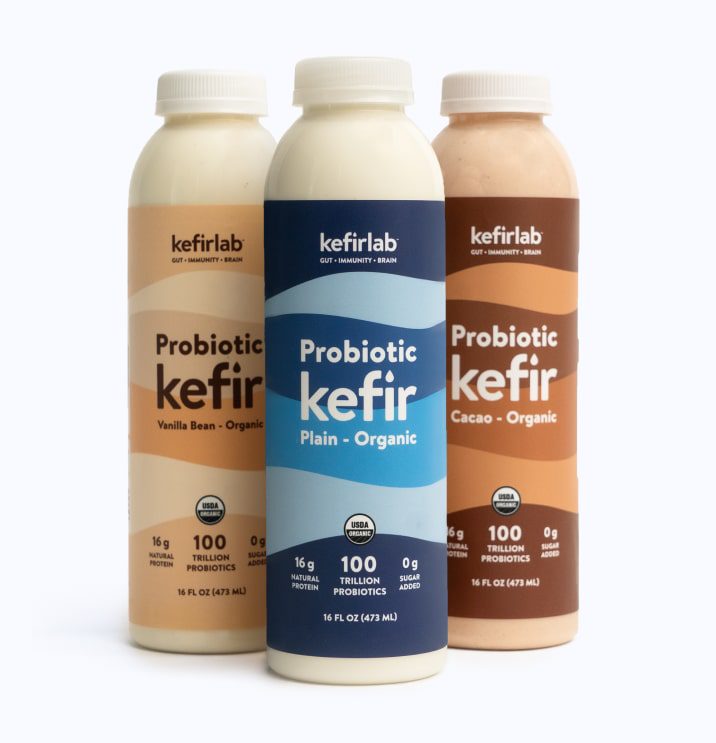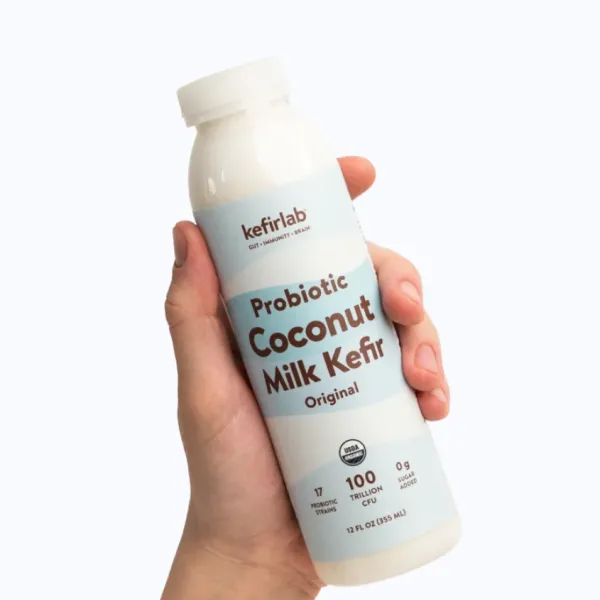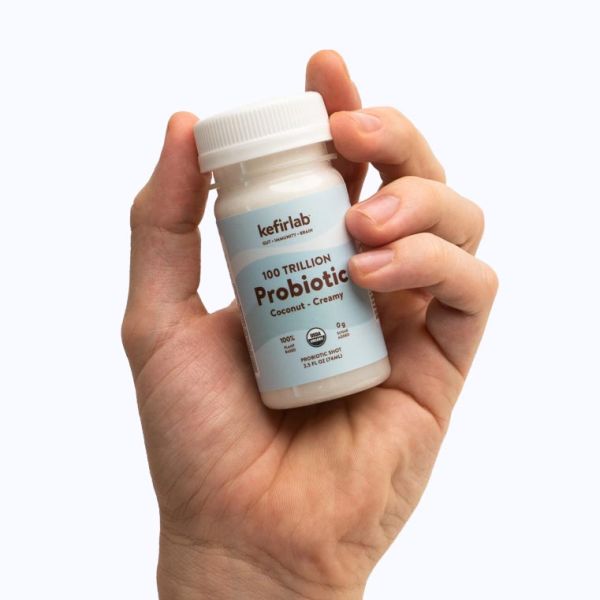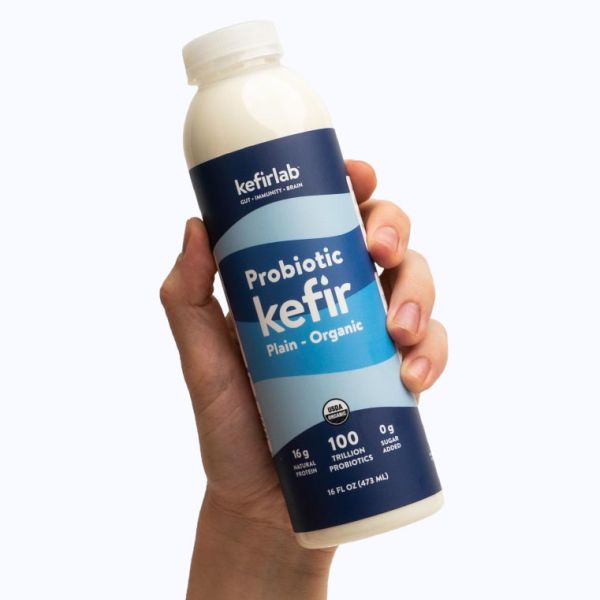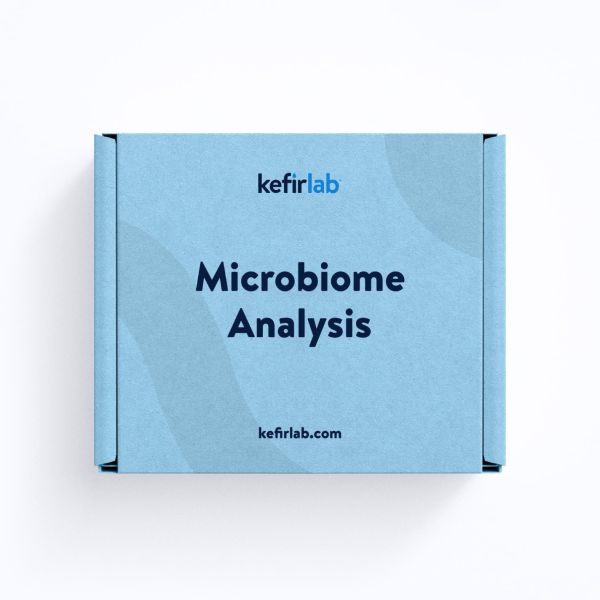Do Probiotics Help Bloating? Complete Guide to Bloating Relief
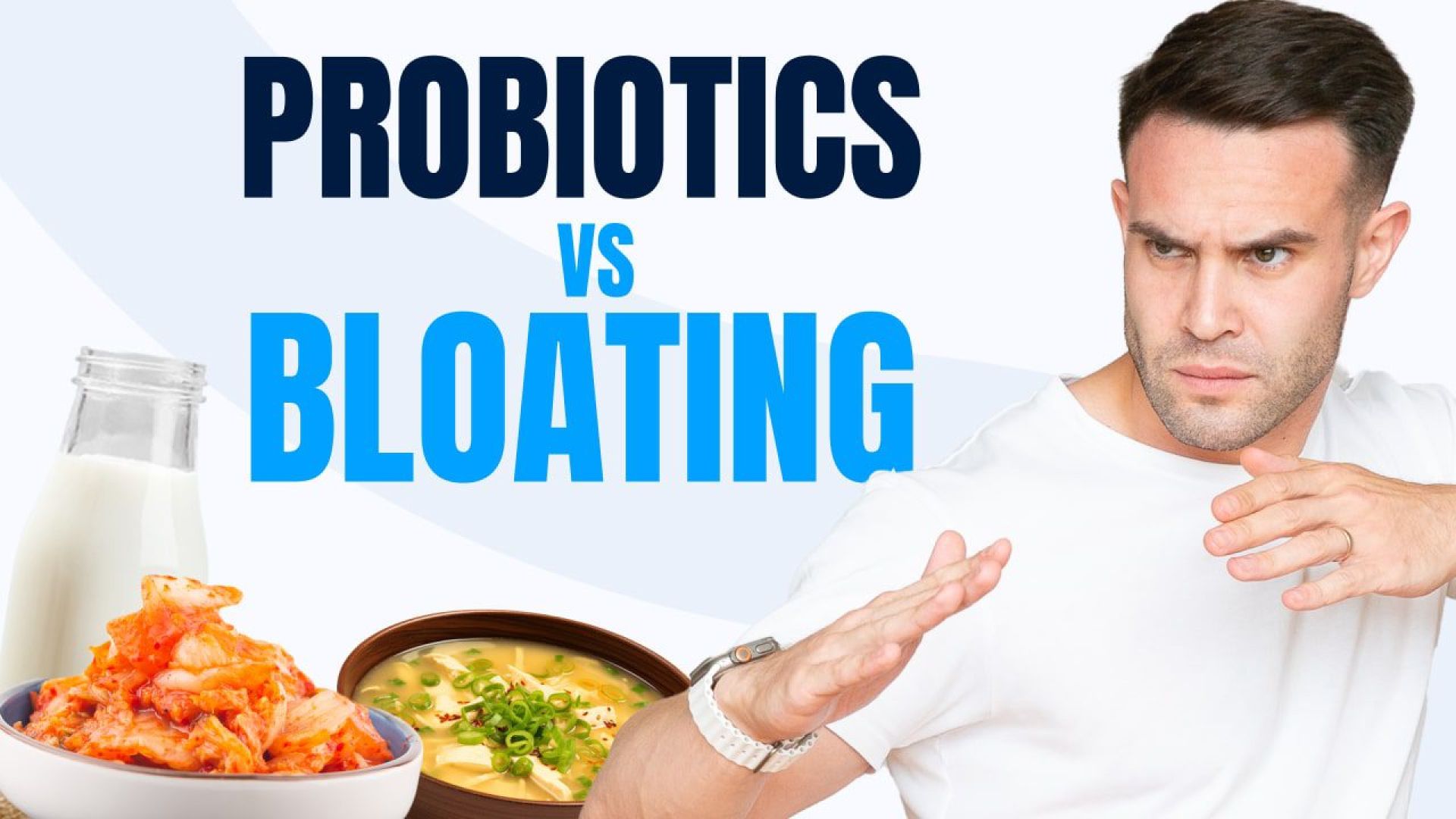
In this article, you will learn…
Bloating is more than just a discomfort—it’s a signal that something might be off in your gut. Did you know that nearly 30% of people experience bloating regularly?
In this article, I’ll walk you through how probiotics can help alleviate bloating by restoring balance in your gut microbiome.
You’ll learn about the specific probiotic strains that work best, how to incorporate them into your routine, and additional lifestyle tips to keep bloating at bay.
Key Takeaways
- Probiotics can help reduce bloating by restoring gut balance and improving digestion.
- Not all probiotics are created equal—certain strains like Lactobacillus acidophilus and Bifidobacterium lactis are particularly effective.
- Gradually introducing probiotics into your routine can minimize temporary side effects like initial bloating.
- Incorporating fermented foods like kefir into your diet can enhance the benefits of probiotics.
- A combination of probiotics and lifestyle changes, such as stress management and mindful eating, can offer lasting relief from bloating.
Understanding Bloating
What is Bloating?
Bloating is that uncomfortable, often painful feeling of fullness and swelling in your abdomen.
It can make your stomach look and feel distended, and it’s usually caused by excess gas or disruptions in the movement of your digestive system.
But why does it happen so frequently?
Well, your gut is a complex ecosystem, and when things are out of balance—due to diet, stress, or underlying conditions like Irritable Bowel Syndrome (IBS)—bloating is often one of the first signs.
Why Bloating Happens
When your gut microbiome is out of sync, your digestive system struggles to process food efficiently, leading to gas build-up and slower transit times.
Foods that are difficult to digest, like those high in FODMAPs, can ferment in the gut, producing gas and causing bloating.
Beyond diet, factors like stress, hormonal changes, and even your lifestyle habits can contribute to this uncomfortable sensation. Understanding these triggers is the first step to finding relief.
Probiotics 101: What Are Probiotics?
Probiotics are live microorganisms, often referred to as “good bacteria,” that provide health benefits when consumed in adequate amounts.
They’re essential for maintaining a healthy balance in your gut microbiome. When you have enough good bacteria, they help outcompete the bad bacteria, aiding digestion and reducing symptoms like bloating.
Probiotics work by breaking down food, absorbing nutrients, and fighting off harmful bacteria that can cause digestive issues.
The key is choosing the right probiotic strains that specifically target bloating and other digestive discomforts.
How Probiotics Affect Bloating
When it comes to bloating, not all probiotics are created equal. Certain strains, like Lactobacillus acidophilus and Bifidobacterium lactis, are known to be particularly effective in alleviating bloating.
These strains help regulate gut motility, enhance digestion, and reduce the amount of gas produced during the fermentation process in your gut.
While it might take a bit of experimentation to find the right probiotic for you, the benefits can be well worth it—less bloating, improved digestion, and a happier gut.
The Right Probiotics for Bloating
When it comes to tackling bloating, certain probiotic strains stand out.
Lactobacillus acidophilus is known for its ability to break down lactose and other difficult-to-digest carbohydrates, which can help reduce gas production and bloating.
Another key player is Bifidobacterium lactis, which supports overall gut health and has been shown to ease bloating and improve regularity.
Additionally, Bacillus coagulans is gaining attention for its potential in reducing IBS-related bloating.
To make the most of these probiotics, consider incorporating them into your diet through foods like kefir or as part of a high-quality supplement.
For instance, KefirLab offers a range of probiotic products, including dairy and coconut kefir, that are rich in these beneficial strains and can be a convenient way to support your gut health daily.
How to Start and What to Expect
Starting probiotics is a journey, and it’s important to approach it with patience. Begin with a lower dose to allow your gut to adjust to the new bacteria, minimizing any initial bloating or discomfort.
As your body adapts, you can gradually increase the dosage. It typically takes about two to four weeks to start noticing the benefits, though this can vary depending on individual gut health and the specific strains you’re using.
During this time, it’s crucial to listen to your body. If you experience increased bloating or discomfort, consider adjusting the dosage or trying a different strain.
Remember, finding the right balance is key to achieving lasting relief from bloating.
Additional Tips for Reducing Bloating
Lifestyle and Dietary Adjustments
While probiotics can play a significant role in reducing bloating, they’re most effective when combined with healthy lifestyle choices.
Start by examining your diet—foods high in FODMAPs, such as beans, onions, and dairy, can trigger bloating in sensitive individuals.
Keeping a food diary can help you identify which foods cause you the most trouble, allowing you to make informed choices about your diet.
In addition to dietary adjustments, managing stress is crucial. Stress can disrupt your digestive system, leading to increased bloating.
Simple practices like deep breathing, regular exercise, and mindfulness can help keep stress in check and support better digestion.
Also, consider your eating habits—eating slowly, chewing thoroughly, and avoiding large meals can reduce the amount of air you swallow and prevent bloating.
The Role of Fermented Foods
Fermented foods are a natural source of probiotics and can complement your probiotic supplement routine.
Incorporating foods like kefir, yogurt, sauerkraut, and kimchi into your diet can provide a diverse array of beneficial bacteria that support gut health.
KefirLab’s range of probiotic-rich products, such as their dairy kefir and coconut kefir, are excellent choices for adding these beneficial bacteria to your daily routine.
Not only do these foods help populate your gut with good bacteria, but they also offer additional nutrients that promote overall health.
By regularly including fermented foods in your diet, you can enhance the effects of your probiotic supplement and work towards a more balanced and bloat-free gut.
FAQ
How long does it take for probiotics to help with bloating?
The time frame can vary based on several factors, including the severity of your bloating, the specific strains of probiotics used, and your overall gut health.
Generally, many people start to notice a reduction in bloating within 2 to 4 weeks of consistent probiotic use.
However, in some cases, it may take longer—up to 8 weeks—to experience significant benefits.
The key is consistency and patience, as probiotics work by gradually rebalancing your gut microbiome.
Should I take probiotics in the morning or at night?
Probiotics can be effective whether taken in the morning or at night.
Taking them on an empty stomach, either first thing in the morning or before bed, is generally recommended to enhance their survival through the acidic environment of the stomach.
However, the most important factor is taking them consistently at the same time each day, so choose a time that fits your routine.
Can I get enough probiotics from food alone?
While fermented foods like kefir, yogurt, sauerkraut, and kimchi are excellent sources of probiotics, it can be challenging to consume enough of these foods daily to achieve the therapeutic effects needed for conditions like bloating.
Probiotic supplements can offer a more concentrated dose of specific strains tailored to your needs.
Combining a diet rich in probiotic foods with supplements can provide a comprehensive approach to gut health.
Are there any side effects of taking probiotics?
Probiotics are generally considered safe for most people, but some may experience mild side effects, especially during the initial phase of taking them.
Common side effects include bloating, gas, and mild digestive discomfort as your gut adjusts to the influx of new bacteria.
These symptoms typically subside within a few days to a couple of weeks. If side effects persist or worsen, it’s advisable to consult with a healthcare provider.
For individuals with compromised immune systems or underlying health conditions, it’s important to seek medical advice before starting probiotics.
How do I know if a probiotic is working?
You’ll know a probiotic is working if you notice improvements in your symptoms.
For bloating, this could mean reduced abdominal discomfort, less frequent gas, and an overall lighter feeling in your stomach.
Improved digestion, regular bowel movements, and better overall gut health are other signs that your probiotic is effective.
Keep in mind that it may take several weeks to see these benefits, and it’s important to track your symptoms over time.
Can I take probiotics with other supplements or medications?
Probiotics are generally safe to take alongside other supplements and medications.
However, timing can be important, especially with antibiotics. To avoid reducing the effectiveness of probiotics, take them a few hours apart from antibiotics.
It’s always a good idea to consult with a healthcare provider before starting any new supplement, particularly if you’re on medications or have existing health issues.
What should I look for in a probiotic supplement?
When choosing a probiotic supplement, look for a product that contains strains known to be effective for bloating, such as Lactobacillus acidophilus and Bifidobacterium lactis.
Ensure the supplement has a high colony-forming unit (CFU) count, preferably in the billions, to ensure sufficient potency.
It’s also important to choose a product with strains that are well-researched and known to survive the acidic environment of the stomach.
Additionally, consider the shelf stability of the product—some probiotics require refrigeration, while others are shelf-stable.
Can I take probiotics every day?
Yes, probiotics can be taken daily and are most effective when taken consistently.
Daily use helps maintain the balance of good bacteria in your gut, which is crucial for ongoing digestive health.
For most people, long-term use of probiotics is safe and beneficial, though it’s always a good idea to periodically assess your needs and consult with a healthcare provider if you have any concerns.
What are the best foods to eat for gut health besides probiotics?
In addition to probiotics, prebiotics are essential for gut health. Prebiotics are non-digestible fibers that feed the beneficial bacteria in your gut.
Foods rich in prebiotics include bananas, onions, garlic, leeks, asparagus, and whole grains. Eating a balanced diet with a variety of fruits, vegetables, and fiber-rich foods will help promote a healthy gut microbiome.
Fermented foods, like kefir and sauerkraut, also provide a natural source of probiotics and can complement your gut health regimen.
Conclusion and Summary
Dealing with bloating can be frustrating, but understanding and supporting your gut health is a powerful step toward lasting relief.
Incorporating the right probiotics into your daily routine can help restore balance in your digestive system, reducing discomfort and improving your overall well-being.
Remember, it’s about finding what works best for you, whether that’s through high-quality supplements or probiotic-rich foods like those offered by KefirLab.
Don’t forget that lifestyle choices play a significant role too. Mindful eating, stress management, and staying active all contribute to a healthier gut and a happier you.
If you’re looking for more personalized guidance, KefirLab’s Microbiome Analysis and Health Coach services can provide deeper insights into your unique gut health needs.
For more tips, recipes, and in-depth guides on gut health, be sure to explore our HealthLab blog. We’re also active on social media and YouTube, where we share the latest research and practical advice to help you on your journey to optimal health.
Works Cited, Relevant Links, and Studies
- Johnston, B. C., Ma, S. S., Goldenberg, J. Z., Thorlund, K., Vandvik, P. O., Loeb, M., & Guyatt, G. H. (2012). Probiotics for the prevention of Clostridium difficile–associated diarrhea: a systematic review and meta-analysis. Annals of Internal Medicine, 157(12), 878-888.
- Ishaque, S. M., Khosruzzaman, S. M., Ahmed, D. S., & Sah, M. P. (2018). A randomized placebo-controlled clinical trial of a multi-strain probiotic formulation (Bio-Kult®) in the management of diarrhea-predominant irritable bowel syndrome. BMC Gastroenterology, 18(1), 1-9.
- Suez, J., Zmora, N., Zilberman-Schapira, G., Mor, U., Dori-Bachash, M., Bashiardes, S., … & Elinav, E.(2018). Post-antibiotic gut mucosal microbiome reconstitution is impaired by probiotics and improved by autologous fecal microbiome transplantation. Cell, 174(6), 1406-1423.
- Almeida, C. C., Lorena, S. L. S., Pavan, C. R., Akasaka, H. M. I., & Mesquita, M. A. (2012). Beneficial effects of long-term consumption of a probiotic combination of Lactobacillus casei Shirota and Bifidobacterium breve Yakult may persist after suspension of therapy in ulcerative colitis patients. Nutritional Clinical Practice, 27(4), 399-407.
- Hill, C., Guarner, F., Reid, G., Gibson, G. R., Merenstein, D. J., Pot, B., Morelli, L., Canani, R. B., Flint, H. J., Salminen, S., Calder, P. C., & Sanders, M. E. (2014). The International Scientific Association for Probiotics and Prebiotics consensus statement on the scope and appropriate use of the term probiotic. Nature Reviews Gastroenterology & Hepatology, 11(8), 506-514.
- Hungin, A. P. S., Mulligan, C., Pot, B., Whorwell, P., Agréus, L., Fracasso, P., Lionis, C., Mendive, J., Philippart de Foy, J. M., Seifert, B., & Wensaas, K. A. (2013). Systematic review: probiotics in the management of lower gastrointestinal symptoms in clinical practice—an evidence-based international guide. Alimentary Pharmacology & Therapeutics, 38(8), 864-886.
- McFarland, L. V. (2015). From yaks to yogurt: the history, development, and current use of probiotics. Clinical Infectious Diseases, 60(suppl_2), S85-S90.
Join Kefir Club
Like our probiotics, our emails are clean and good for you. Spam Free. Unsubscribe anytime.
